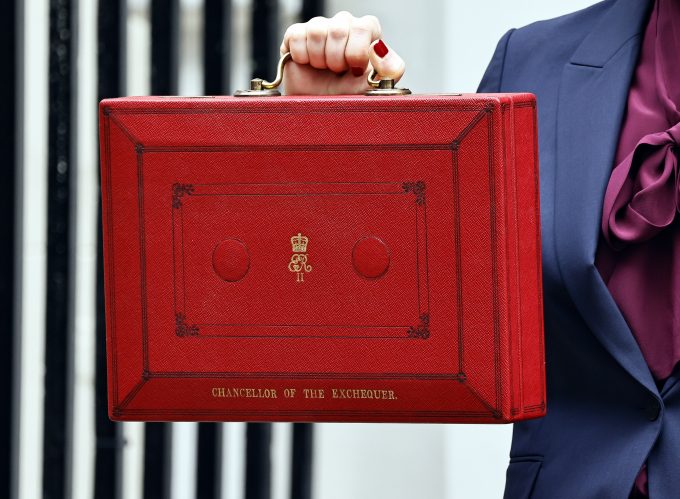This budget will probably be remembered for two things – obviously the bizarre early release by the OBR but also the, almost as perplexing, plans for a mansion tax.
It was packed with short-term political manoeuvring that sadly took precedent over long-term growth initiatives, but there were a couple of positive spots. Reforming the ISA allowance to see a portion designated solely for investment in stocks and shares, plus the exemption of stamp duty on trading in shares of newly listed companies for three-years are welcomed.
We hope the latter is a precursor to abolishing stamp duty on shares altogether – but we shall see. Rachel Reeves claims that these two modifications could see an extra £4bn of capital flow into UK shares.
There were more than one or two head-scratchers in there too. The chancellor talked of championing a “startup” Britain but cut the upfront income tax relief on investments in venture capital trusts (VCTs – which invest in small and medium-sized businesses and companies listed on AIM and offer investors capital gains tax protections and high tax-free dividends) from 30% to 20%.
For all the talk of encouraging investing and saving, Reeves also lifted income tax on dividends and interest by 2 percentage points and created new bands for property rental income.
The latter measure, that will see property income taxed at 22% at the basic rate, 42% at the higher rate and 47% at the additional rate from April 2027, is likely to result in this being passed on to renters or may even encourage more private landlords to sell up – in both cases rents will rise from already all-time highs.
In our QD view last week, we wrote about the supply of private rented housing in the UK dwindling due to increased tax and regulatory burdens, at a time when demand for rental properties is rising. This strengthens the rental outlook for build-to-rent and private rented sector specialists, including the £1.4bn London-listed Grainger.
Property sector eyes budget impact
Indeed, the impact on the property sector from the budget measures seems most significant – from the much-trailed mansion tax to business rates reform and potential tourist taxes.
Most keenly watched was the reaction of the bond market. Gilt yields softened following the announcement as the fiscal headroom more than doubled to £22bn. Both the 10-year UK gilt yield and the five-year swap rate fell on Wednesday.
It also appears the budget policies will be less inflationary than last time out, when employer NI contributions were hiked (although we’ll wait to see the impact of an increase to the minimum wage). This should help with future interest rate decisions. With this, the share prices of property stocks rose by an average of 1.4% across the UK listed universe on the day extending to 2.0% over two days.
All of the big players across the different sectors felt the love, including British Land up 6.5% over Wednesday and Thursday, the London office developers GPE (up 3.9%) and Derwent London (2.9%), logistics specialist SEGRO (3.4%) and Tritax Big Box (2.8%) and retail-focused landlords NewRiver (4.5%), Hammerson (2.9%) and Supermarket Income REIT (3.2%). Social Housing REIT’s share price rose 5.1%, but curiously Grainger’s share price uplift was more muted at 0.8%.
Activity in real estate investment markets, which suffered an extended hiatus leading up to the delayed budget, should now pick up – boosted by the removal of uncertainty surrounding the budget and a more favourable interest rate outlook. That should translate into higher capital values.
Mansion tax folly
One of the most controversial policies in the budget was the inclusion of the mansion tax – or the high value council tax surcharge. This will see owners of property worth over £2m hit with a recurring annual charge additional to existing council tax bills.
The policy has thrown up so many questions around the practicalities of implementing it, that I’m left wondering whether it will even come to pass (currently slated for 2028). It seems the reasons for its inclusion was more political than financial, especially when you consider that the government forecasts it will raise just £400m in the first tax year, rising to £430m and £435m in the next two fiscal years. Is it really worth it for these measly figures?
Surely the damage it will do to the housing market in the meantime will more than offset these sums. The high-end market will capitulate and with it stamp duty receipts. A trickle-down effect on the wider, already stagnant housing market may also be an unintended consequence.
There’s a reason that values from 1991 still form the basis of council tax bands. It will be an extremely complicated and costly exercise to revalue every house in the UK, which is why it has been kicked down the run by successive governments since. This chancellor proposes that homes in the highest three bands (F, G, and H – which were valued at as little as £120,001 in 1991) are rerated. That equates to around 2.4 million properties.
Does the valuation office have the resources to carry this out? How much will it cost? Will there be an appeals process? What about deferrals? Like I said, so many questions.
Meanwhile, Reeves missed a golden opportunity to actually stimulate the dormant housing market through stamp duty reforms or help-to-buy schemes. For all the political manoeuvring, the budget could have been worse for markets – which is probably all we could have hoped for considering the fallout from recent budgets.
